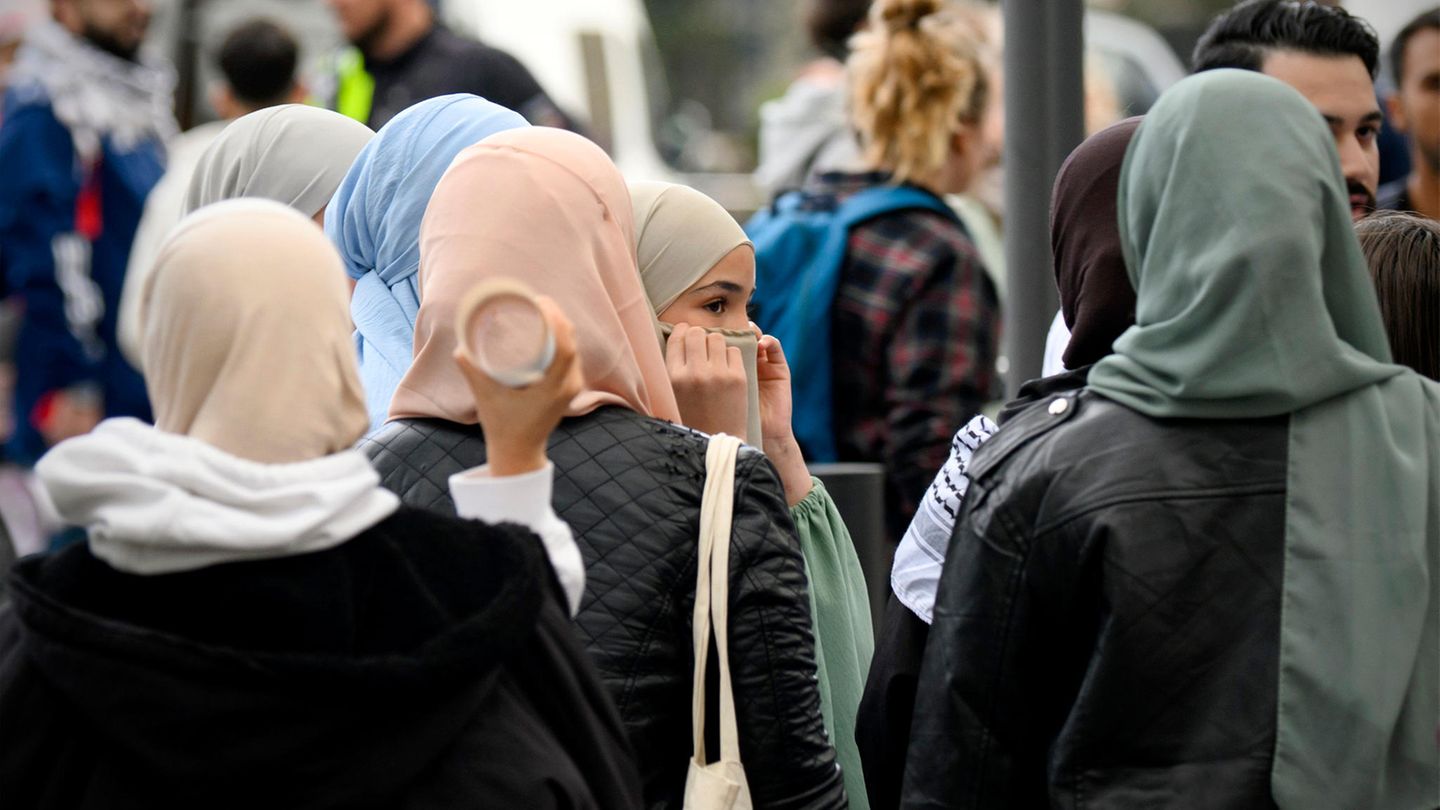Niqabs and burkas will no longer be allowed to be worn in Hamburg schools in the future. A new legal basis should even be created for this. How sensible is such a ban?
The Hanseatic city of Hamburg wants to ban facial coverings such as niqabs and burkas in schools. According to School Senator Ksenija Bekeris, there are increasing numbers of “individual cases of girls at school with their faces completely covered” in Hamburg. The 46-year-old SPD politician said this in an interview with . Advice would not have made any progress in the specific cases. Now Hamburg is planning a new legal regulation.
If students continue to violate the ban even after a consultation, they could be expelled from class by the school management. However, the law also offers scope for exceptions. According to the Hamburg school authorities, individual regulations should be able to be made in individual cases.
The initiative by the SPD and the Greens is to be passed by the Hamburg parliament on Wednesday, May 15th. But how many individual cases are there really that justify this change in the law?
The number of women wearing burkas in Germany is negligible
According to the Hamburg school authorities, there are currently around ten cases in the city. There are no exact figures as to how many women in Germany wear a niqab or burqa. Burkas are not traditional Islamic clothing and are frowned upon in many Muslim countries. The number of women wearing it in Germany is therefore likely to be negligible.
Islamic scholars have been questioning the sense of bans on veiling for years. Wearing a burqa or niqab could mean a radical interpretation of Islam, but it doesn’t have to be. In addition, bans would fuel racist resentment and possibly lead to the wearers being excluded.
Hamburg’s ban currently has no legal basis
There is currently no legal basis for a ban in Hamburg. Four years ago, a Muslim vocational student won a court order to be allowed to cover her face at school. In Germany, wearing a face veil in public is generally permitted and is covered by freedom of belief in the Basic Law. However, members of the Bundeswehr or civil servants are not allowed to wear face coverings.
Hamburg would not be an isolated case with the ban on schools. Bavaria, Lower Saxony and Baden-Württemberg have also already issued regulations against face coverings in schools. Individual universities, such as the University of Kiel, have also banned the wearing of burqas and niqabs in lecture halls. Much more than a specific increase in the number of women wearing niqabs and burkas, the run-up to these bans was about a social and political attitude.
Writer in a live interview
Conversation about life and death – the pictures from STERN HOUR with Salman Rushdie
The ban on veiling in Hamburg is now being negotiated in the immediate context of the Islamist demonstrations by the “Muslim Interaktiv” network in St. Georg, in which fully veiled women also took part. The aim is to combat radicalization from certain communities, said School Senator Bekeris on NDR.
The Shura, the association of mosque communities in Hamburg, questions whether a ban on face coverings is an effective means of this project. “Since the neutrality requirement prohibits the state from explicitly evaluating, banning or taking action against individual religious and ideological beliefs (…), the question of proportionality and necessity arises – not least in view of the extremely small number of schoolgirls with their faces covered a legal regulation,” the association told Norddeutscher Rundfunk.
Sources: ,
Source: Stern
I have been working in the news industry for over 6 years, first as a reporter and now as an editor. I have covered politics extensively, and my work has appeared in major newspapers and online news outlets around the world. In addition to my writing, I also contribute regularly to 24 Hours World.




